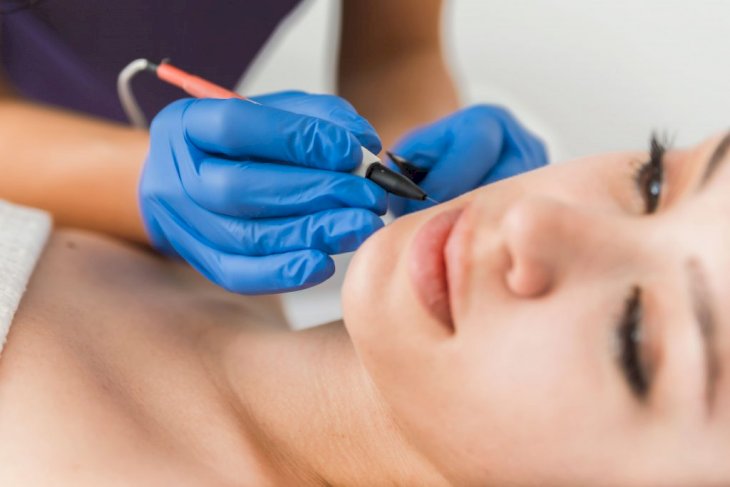
A Comprehensive Guide To Managing PCOS
Living with PCOS is difficult because you might not be able to come to terms with the fact that there is no cure. Even though you’re forced to live with it, you can manage the symptoms you experience.
Living with a disease like PCOS can be difficult because this disease is often underdiagnosed or misunderstood. Managing it is crucial because it can lead to serious conditions like insulin resistance, type 2 diabetes, and heart disease.
Because PCOS can’t be cured, treatment aims to manage specific symptoms like irregular periods or infertility. Other than following a PCOS diet, here are different ways to help manage your symptoms.
Weight-Loss

Shutterstock
Exercising and a healthy diet helps you maintain your weight at a healthy level, regulate your period, and lower your risk of developing serious conditions like heart disease. Weight-loss is also beneficial to improving your ovulation cycle, making you more fertile!
You don’t even have to get too committed to the gym because doing 30-minutes of moderate-intensity exercise at least three times a week can help you lose weight. Moderate-intensity exercises include fun activities like dancing or hiking.
Regulating Periods

Shuttercstock By iama_sing
If you suffer from an irregular period, you might not be complaining too much; most women take the pill or use the patch to skip theirs. But if you suffer from abnormal bleeding, you might want to get it under control, so you’re not burning money on sanitary products.
Using combination birth control pills can regulate your hormones and correct any abnormalities in your cycle. They also help with other symptoms from PCOS, like excess hair growth and acne.
If you don’t want to take birth control for personal reasons, you can try progestin therapy. You take the pills for 10-14 days every month or so to regulate your cycle.
Progestin therapy is not a substitute for contraception, so you can fall pregnant if you opt for this method. An added benefit to using birth control or progestin therapy is a lowered risk of developing endometrial cancer.
Hair Growth Control

Shutterstock
To slow hair growth, you can use a prescription topical cream like Vaniqa that slows down hair growth. It’s used on the face, especially around the chin, but it’s not going to stop the hair from growing back.
You can remove your hair with conventional treatments like using hair removal creams, shaving, or waxing. Electrolysis and laser hair removal are hair removal techniques that can help you get rid of unwanted hair!
You might be excited because there is hope for getting rid of that unwanted hair, but electrolysis and laser hair removal are expensive procedures. If you seek out these therapies, make sure that licensed professionals perform them because incorrect use can lead to serious damage!
Assistance With Fertility

Shutterstock
With the help of clomifene, women with PCOS can get pregnant, take it for a few days every month, and its effects encourage you to ovulate. When you ovulate, an egg is released, and your chances of getting pregnant are increased!
If that doesn’t work, metformin, an unconventional medication in this category, can be used to stimulate ovulation as it encourages regular periods and can even lower the risk of a miscarriage.
Taking metformin has loads of benefits; it can lower the risk of developing type 2 diabetes because it lowers insulin, blood sugar, and cholesterol levels. It can also lower your risk of developing heart disease!
Surgical Interventions

Shutterstock
If you are experiencing trouble with fertility and have exhausted all revenues, including IVF cycles, then you can go for an ovarian drilling surgery. The surgery is performed laparoscopically under general anesthesia.
Holes are made in the ovaries to lower androgen production. This procedure can correct the hormone imbalance, thereby restoring a natural and normal function to your ovaries.